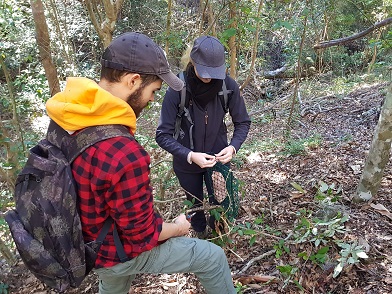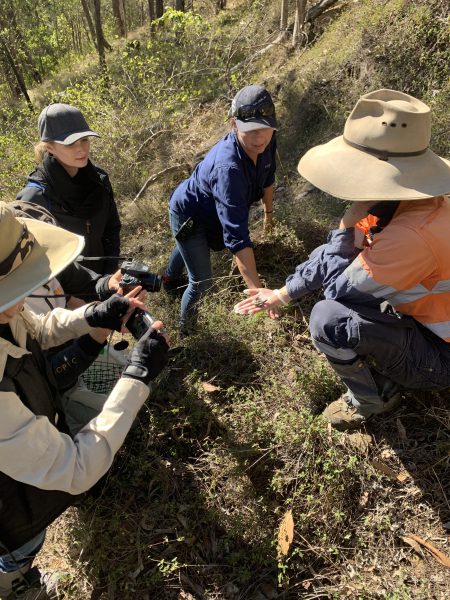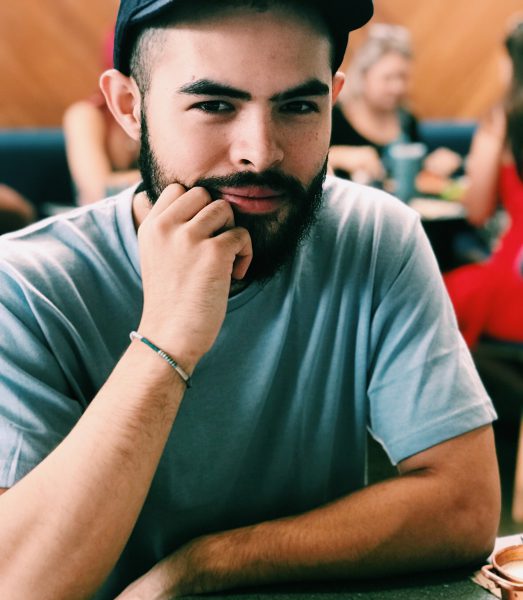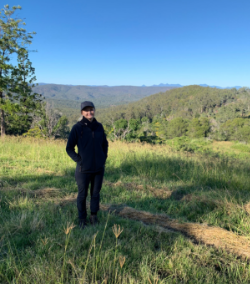Since 2014, Wildlife Queensland has hosted students from a range of educational institutions seeking placement opportunities in the environmental conservation industry. Students placed with Wildlife Queensland undertake projects in policy development, wildlife monitoring, and community engagement, and support Head Office staff in the day-to-day running of the Society.
Our placement projects are designed to offer students the opportunity to develop both discipline-specific and transferable skills, as well as an understanding of the contributions and obligations expected of a professional graduate in the environmental field.
Stan and Jessica, two university students who were recently placed with Wildlife Queensland, discuss what it was like to be a part of WPSQ’s Student Placement Program.
Student placements: July 2019
Stan Earnshaw
Degree: Final year of studying an Ecology major within the Bachelor of Science (BSc) program at the University of Queensland.
Q. What projects and activities have you been involved in whilst at WPSQ?
I was lucky enough to be involved in plenty of work both inside and outside of the office:
- I was able to join the Quoll Seekers Network and visit a number of sites for detection dog surveying in Logan (see previous stories: 26 Jul 2019 and 7 Jul 2019). I was involved in baiting and camera trapping.
- I took part in greater glider nest box monitoring and was lucky enough to observe a glider in one of the boxes.
- I played a large role in working in the Richmond Birdwing Butterfly Database – making sighting and planting records up to date, thoroughly combing through past records and amending errors/adding information. My work culminated in creating comprehensive maps displaying vine and butterfly sighting locations in both Queensland and Northern NSW, which I hope will be useful to gauge the success of conservation efforts and to determine target areas for vine plantings in order to connect habitat corridors.
- I took in platypus trapping in south-east Queensland as part of a study by PhD student Tamielle Brunt.

UQ and USC Placement Students, Stan and Jessica, setting up traps at Mt Elliott as part of their spotted-tailed quoll placement project.
Q. What skills and learnings will you take away from your time with WPSQ?
I feel like I have improved greatly in database management and mapping from my work on the Richmond Birdwing Butterfly (RBB) database, skills that will certainly come in handy in the future. Additionally, I have built up a general understanding of the workflow of WPSQ and other environmental organisations, gaining knowledge in safety procedures and project coordination, as well as in the conservation of Australia’s native flora and fauna.
Q. What has been the most enjoyable aspect of working with WPSQ?
I have greatly enjoyed having the ability to get involved in and experience a range of projects within the organisation, which maximised my learning and exposure to new skills, field techniques, and environments.
Also, I appreciated being given responsibility for the RBB project. I was able to take learning and decision-making into my own hands which improved my problem-solving skills as well as my belief in my own abilities.
Q. Do you have a funny or emotional story of your time with WPSQ that you’d like to relate to?
Not that I can think of. Though, working around the quoll detection dogs Sparky and Lilly has been a fun experience.
Jessica McClure
Degree: Bachelor of Animal Ecology with a minor in Conservation & Restoration at the University of the Sunshine Coast
Q. What projects and activities have you been involved in whilst at WPSQ?
I was involved in a number of projects, including:
- The greater glider nest box monitoring project involved checking for gliders and moving lower nest boxes up to higher areas. We found 1 glider and some brush tails.
- Quoll dog detection surveying in Logan. I accompanied the dogs on surveys, set up camera traps and looked for scat to cement findings.
- I joined PlatypusWatch project officer, Tamielle Brunt, on a platypus survey. I helped to set up nets in waterways where eDNA has shown platypus reside.
- I also created a project proposal. I drew maps, researched information and used previous survey data in the proposal.
Q. What skills and learnings will you take away from your time with WPSQ?

Jessica and the quoll detection team find scat.
I’ve gained enhanced communication skills through all the direct contact with people in the field who have the same passion.
I’ve learned a lot about safety – specifically around making sure preparation work is done and in-field work is done efficiently.
I’ve set up camera traps before but not for a while. I really enjoyed a refresher course on setting up camera traps.
Q. What has been the most enjoyable aspect of working with WPSQ?
I’ve really enjoyed working with like-minded people, being in the field and learning facts from Matt (WPSQ’s Projects Manager).
Working with the quoll detection dogs was another highlight. They are amazing, I really appreciate the work they do.
I also loved venturing into untouched areas. One time when we were out scouting for quoll I found a hidden fairy garden in an undiscovered spot. That was magical!
Q. Do you have a funny or emotional story of your time with WPSQ that you’d like to relate?
I was so excited when we found scat after two days searching for quoll with the dog detection team – everyone was excited!
More information
Find out more about WPSQ’s Student Placement Program.


